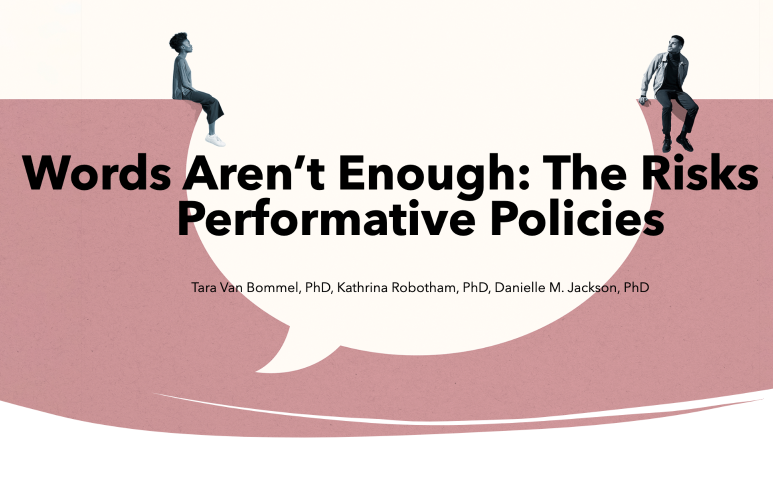Some 68% of employees believe their organization’s coronavirus pandemic-mitigation policies did not provide adequate care and safety, and three-quarters of employees from organizations within White-majority countries believe their organization’s racial equity policies are not genuine. Their beliefs are damaging employee morale and organizations’ ability to attract and retain workers.
In contrast, employees who believe their senior leaders have genuine empathy for these issues are 30% less likely to experience general work burnout and more likely to stay with an organization, according to Words Aren’t Enough: The Risks of Performative Policies, a report issued by Catalyst, a thought leadership nonprofit that advances women into leadership positions.
Employees of color were especially likely to be impacted by mistrust of their organizations’ racial equity policies. Only 25% said leadership’s backing of diversity, equity and inclusion concerns was sincere in fostering engagement, supporting employees’ ability to balance work-life demands and strengthening employees’ intent to stay.
Separately, organizations’ ability to attract and retain women employees are directly related to perceptions surrounding these policies. As women have taken on greater roles as caregivers as a result of the pandemic, a greater number of them have left the workforce, compared with male counterparts.
Employees are increasingly considering the genuineness of an organization’s moral character. An organization may have stated values, but unless policies that impact workers are aligned with these values, their statements will ring hollow. Furthermore, those values will have to reflect those of its workers. As the report authors observe, “With the Great Resignation [workers giving up employment for a variety of reasons, including job satisfaction or reassessment of personal values], employees have demonstrated that they will take their talent elsewhere if an organization’s values don’t match up with their own; in many cases, employees consider flexibility, inclusion, and ethical leadership as non-negotiable.”
Some organizations did implement pandemic-era work modifications employees appreciated, such as flexible and remote working options and extended parental leave or childcare options. But employees worry these modifications would be temporary, and they would lose control of when – or whether – they would be urged to return to “normal” working conditions prematurely.
Employees were also conscious that organizations’ pandemic-related and racial equity could have a performative, as opposed to a substantial, aspect. Performative COVID policies included allowing remote work but not providing flexibility for those providing caretaking or home-based schooling; establishing COVID precautions but not providing personal protective equipment or conducting temperature checks; and announcing self-care programs but not addressing burdensome workloads or “always working” expectations of work-from-home employees.
Performative racial equity actions included announcing pledged funds to support racial equity, but not actually allocating the funds; putting up supportive images and slogans on social media feeds but not actually implementing changes to workplace equity and inclusion issues; and hiring diversity officers but not allocation power or resources to their positions, not implementing their suggestions, and otherwise ignoring the problems they identify.
The report’s findings are based on a survey of nearly 7,000 employees from 14 countries. A full copy of the report is available here: https://www.catalyst.org/reports/risks-performative-policies
